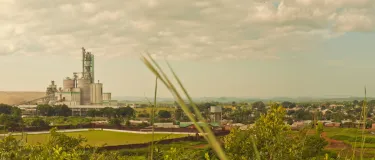Context
LIFE program
The LIFE programme is the EU’s funding instrument for the environment and climate action. The general objective of LIFE is to contribute to the implementation, updating and development of EU environmental and climate policy and legislation by co-financing projects with European added value.
LIFE began in 1992 and to date there have been four complete phases of the programme (LIFE I: 1992-1995, LIFE II: 1996-1999, LIFE III: 2000-2006 and LIFE+: 2007-2013). During this period, LIFE has co-financed some 3954 projects across the EU, contributing approximately €3.1 billion to the protection of the environment.
The European Commission (DG Environment and DG Climate Action) manages the LIFE programme. The Commission has delegated the implementation of many components of the LIFE programme to the Executive Agency for Small and Medium-sized Enterprises (EASME). External selection, monitoring and communication teams provide assistance to the Commission and EASME. The European Investment Bank will manage the two new financial instruments (NCFF and PF4EE).
SOLID Life project
The SOLID Life project is financed by the LIFE program. The development of Solidia Technologies® solutions in Europe answers to all the needs and requirements of the LIFE program financement:
-
Demonstration at industrial scale,
-
Validation of technical & economic viability,
-
National & transnational character,
-
Focus on Energy intensive industries to reach EU 2030 targets,
-
Innovative and cost-effective technologies, with the objective of reducing the GHG emission intensity of manufacturing and process industries,
-
Focus on the design, development and implementation of breakthrough solutions mainly via demonstration program with a long term impact, including in real industrial environments,
-
Activities are expected to be led by industries involving partners and technology providers,
-
Demonstrate the viability of new low-carbon technologies,
-
Projects should deliver economically viable solutions and technologies or new raw materials that allow a reduction in specific GHG emission intensity by at least 15 .
The development of Solidia Technologies® solutions in Europe answers all the points mentioned above therefore the proposal launched in September 2015 was accepted for a start of the project mid-June 2016.






